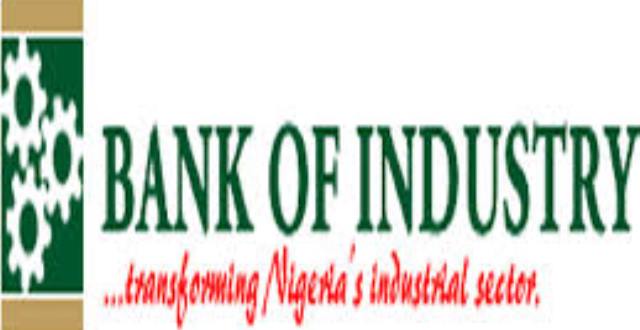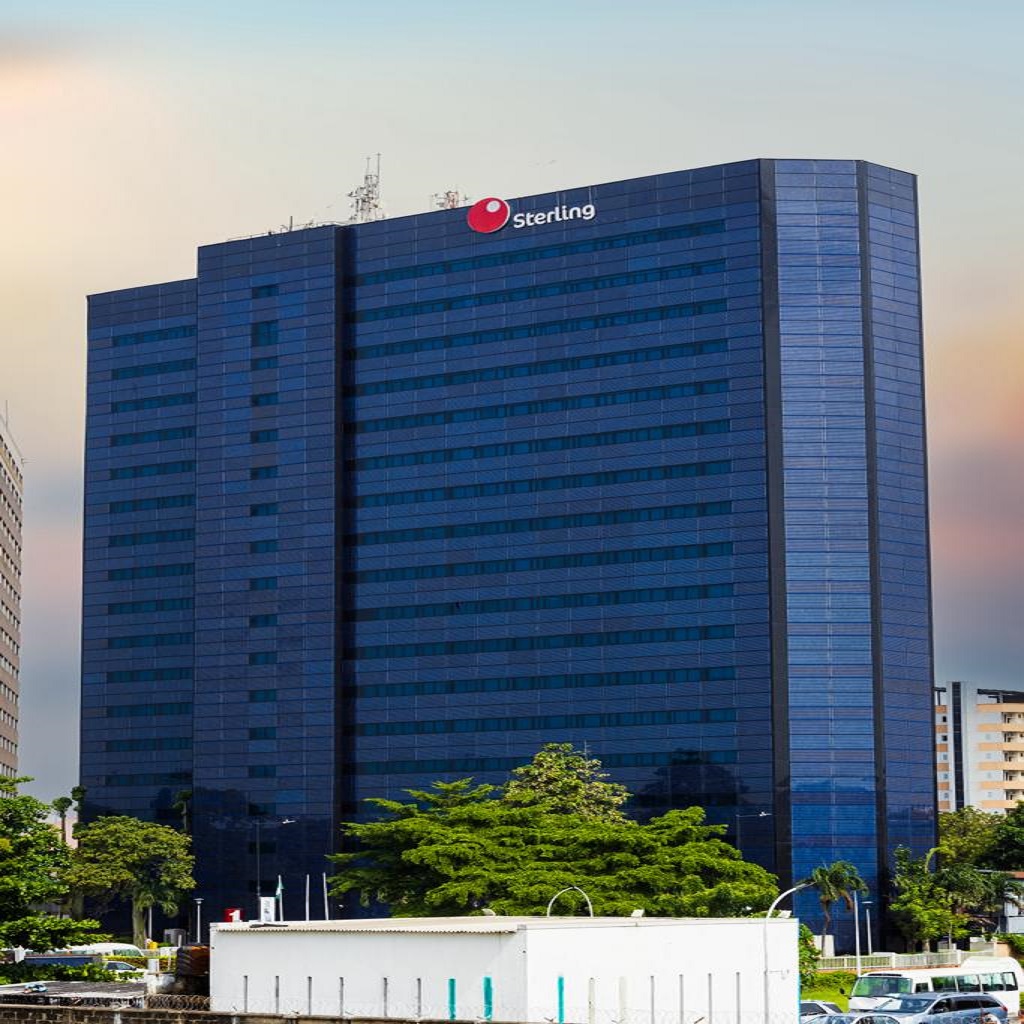E-Financial
BOI’s Disbursement to SMEs, Large Enterprises Hits Over N1trn in 6 Years

The Bank of Industry (BoI) has revealed that its disbursement to Micro, Small and Medium Enterprises (SMEs) and large enterprises has reached over N1trillion in six years.

According to the Development Finance Institution (DFI), the feat was achievable through strong strategic partnerships with various institutions in the state, federal government agencies and private sector organisations.
Oluwakayode Pitan, the Managing Director, Bank of Industry (BOI), disclosed this while speaking at the 37th Omolayole Management Lecture series themed, “African Continental Free Trade Area (AfCFTA)- Prospects for African Youth Leadership,” organised by the Lagos Chamber of Commerce and Industry (LCCI).
He said the BOI is at the forefront of industrialising the Nigerian economy and would continue to take deliberate steps towards addressing issues related to financing gaps across all business segments.
According to him, in the last three years, over $3 billion has been raised through the international financial market in its objective to continuously improve its capacity to bridge the huge financing gap that exist in Nigeria’s industrial sector.
He added that there is a growing number of start-up businesses in Africa at present, as young people are embracing their entrepreneurial mind-set and technological skills, resulting in the rapid digital transformation of the continent.
He advised that to address this risk and realise the gains expected for a free trade area, there is a need for increased infrastructure investment in Nigeria, saying that one way to achieve this is through public-private partnerships (PPPs), which should be significantly leveraged towards building sustainable infrastructural facilities across the country, while the Government provides an enabling governance framework.
“The newly established Infrastructure Company (InfraCo) will play a lead role in its implementation,” he added.
He added that despite making up a significant percentage of the continent’s population, the participation of young people in cross-border trade and trade governance matters is still very limited.
He said improving transparency and ease of doing business in Nigeria has a larger implication now that the AfCFTA has taken off, saying that this would enable foreign investors make informed decisions on where to site their manufacturing hubs within African nations that will provide them with more benefits.
“Because there are no restrictions on moving goods across borders, the need to establish a business in a country where it is easier to operate will now be a more desirable factor than the existence of market prospects,” he said.
Earlier, the president, LCCI, Toki Mabogunje, expressed concerns over the high level of youth unemployment pegged at over 33 per cent as at Q4 2020
She stated the urgent need for programmes and projects that engage the nation’s innovative, dynamic, youth to unleash their latent potentials for the benefits of the country.
She added that the AfCFTA provides an opportunity for our young entrepreneurs and startups to explore a continent-wide market if well launched, structured and implemented.
She stated that the agreement became operational on January 1, 2021 and marks the biggest free trade area globally in terms of the number of participating countries since the formation of the World Trade Organisation in 1995.
She added that while the take-off of AfCFTA should be lauded, much work remains to be done as critical parts of the agreement are yet to be finalised, stressing that several key issues including schedules of tariff concessions, schedules of service commitment, rules of origin, investment, competition policy and intellectual property rights have not been concluded.
The LCCI boss said AfCFTA has the potential to accelerate socioeconomic development of the African continent, saying that if well-implemented, it would stimulate economic growth, generate job opportunities, and helps to facilitate the economic diversification of African economies while ensuring people, products and services move freely across the continent.
She said according to estimations by the United Nations Economic Commission for Africa (UNECA), AfCFTA has the capacity to expand Africa’s manufacturing output to $930 billion by 2025, from $500 billion in 2016.
“The Brookings Institution also sees Africa’s economic size rising to $6.7 trillion by 2030 from $3.4 billion in 2019 on the back of a well-implemented AfCFTA.
A successful AfCFTA requires the active participation of Africa’s Young leaders in the implementation process, which is the rationale for selecting this edition’s topic which seeks to prepare, equip and put in place machinery that will help young leaders improve their management dexterity and hone their administrative expertise,” she added.
She stated that there is still a lack of clarity about the type of value addition that must occur within an AfCFTA State party for a product to benefit from tariff reduction, adding that there are pending negotiations at continental level delaying the implementation of the trade agreement.
“A great deal of sensitisation and enlightenment still need to be done on the implementation modalities,” she advised.
She also noted that there are concerns about the adherence of participating countries to the protocols within the AfCFTA framework, saying that Africa’s trade narrative, has been challenged by trade malpractices such as smuggling, unilaterism and violation of trade protocols,” she added.
In his lecture, Dr. Michael Omolayole said the provisions of the treaty setting up AFCFTA are, if sincerely implemented by African countries, likely to propel them from the third world to the first world.
“Believe me, | am not exaggerating. On our part as Nigerians, | think we were over cautious in being reluctant to ratify the treaty until the last moment. We could have avoided the hesitation, if we had set up a think-tank of brilliant and knowledgeable Nigerians in the matter of economics and free trade, right from the beginning of the African Union (AU) deliberating on the matter,” he said.
In his words: “Although | have not seen the treaty, | believe as an international instrument, provisions would have been made for countries especially the large ones like Nigeria, to protect themselves against breach of the treaty and against acts of sabotage.
It is better late than never, but thinktanks can still be set up and our brilliant young people with requisite knowledge should be encouraged to dissect and digest the treaty and to set up study groups to master the treaty inside out.”
E-Financial
ACAMB Educates Content Creator to Curb Misinformation on Bank Recapitalisation

In a bid to foster accurate public discourse as well as protect the stability of the financial sector, the Association of Corporate and Marketing Professionals in Banks (ACAMB) has stepped in to educate renowned content creator, Unofficial Osas, following his misrepresentation of facts concerning the Central Bank of Nigeria’s (CBN) recapitalisation drive, and subsequent invitation by the Nigerian Police Force.

ACAMB
The intervention by ACAMB led to the successful retraction of a misleading video regarding the CBN recapitalisation policy, demonstrating the Association’s commitment to its core mandate of public enlightenment.
In his official apology video, the content creator stated, “I was invited by the Nigerian police force national cyber crime centre in Abuja over the video I posted on the 15th of December, where i spoke about 12 banks that were shut down in relation to the CBN recapitalisation policy. I would like to offer an official retraction of that video and want to reiterate that no bank is shutting down.
“As a matter of fact, most of the banks have now met the ₦500 billion minimum capital base for banks with international and the N200bn for national banks recapitalisation requirements, so no bank is shutting down.
“I want to specifically appreciate ACAMB. They were very professional in handling this case and did well to educate and enlighten me on the recapitalisation process. I am now better informed and know better”
Commenting on the resolution, President of ACAMB, Jide Sipe, reinforced the Association’s dedication to protecting the integrity of the banking sector. “ACAMB stands for the restoration of professional banking ethics and public confidence through seamless information management and public enlightenment.
“We believe that an informed public is an empowered public. By engaging Unofficial Osas, we ensured that accurate information regarding the resilience and strength of our banks was disseminated to the millions of Nigerians who follow him.”
The Intervention shows ACAMB is dedicated to evolving strategies that enhance and sustain a good image for the nation’s banking sector as well as assist in fostering better banking habits among Nigerians.
E-Financial
FirstCap MD says Payment Security Remains Biggest Barrier to Bankable Gas and Power Projects

Ukandu E. Ukandu, Managing Director/CEO of FirstCap Limited, a leading investment banking firm and subsidiary of First HoldCo Plc., has reaffirmed that payment security remains the most decisive factor in determining whether gas and power projects in Nigeria secure financing.

He shared this perspective during a panel discussion on project bankability at the 2026 SPE Lagos Energy Week.
Ukandu noted that although several risks influence financing decisions, payment risk consistently emerges as the key barrier to financial close.
“Every major risk matter, but payment risk is the ultimate deal‑breaker. Without strong payment security and disciplined collections, no project can attract sustainable financing,” he said.
He explained that lenders typically evaluate three core risk pillars, payment reliability, foreign‑exchange exposure, and contract enforceability, with payment reliability presenting the greatest challenge across Nigeria’s energy value chain. Persistent collection inefficiencies, rising arrears, and liquidity pressures continue to weaken investor confidence.
To enhance payment security, Ukandu highlighted mechanisms widely used by financiers, including letters of credit, bank guarantees, escrow accounts with payment‑waterfall structures, reserve and sinking funds, sovereign or sub‑sovereign support, and take‑or‑pay offtake agreements.
Addressing foreign exchange risk, he noted that volatility remains difficult to manage, especially for projects with dollar‑denominated costs but naira‑denominated revenues. Lenders typically mitigate this through foreign exchange ‑linked tariff indexation, partial dollarisation for credible industrial offtakers, escrow protections, selective hedging, and foreign exchange reserve buffers.
However, he cautioned that indexation alone seldom eliminates exposure due to regulatory limits and timing delays.
On legal and regulatory certainty, Ukandu stressed the need for contracts that are enforceable and clearly structured, particularly around take‑or‑pay obligations, termination payments, step‑in rights, and dispute‑resolution frameworks. He added that factors such as tariff adjustments, licence changes, and price controls can significantly affect project viability if they are not fully addressed at the contracting stage.
While fiscal incentives such as tax holidays and accelerated depreciation can strengthen project economics, Ukandu emphasised that they cannot compensate for weak fundamentals.
“Incentives make a good project better, but they do not make a weak project bankable. Cash‑flow reliability and disciplined foreign exchange management must come first,” he said. He also noted that naira‑based incentives may lose value if project revenues are not indexed.
He concluded by urging industry players to prioritise revenue security from the earliest stages of project structuring: “Protect returns at the source. Build strong offtake arrangements with solid credit support and currency alignment to ensure cash is received in full and on time.”
E-Financial
Sterling HoldCo Starts Allotment of Oversubscribed Public Offer Shares

Sterling Financial Holdings Company Plc (Sterling HoldCo) has begun allotting 12,581,000,000 ordinary shares of 50 kobo each at ₦7.00 per share from its 2025 Public Offer.

Sterling HoldCo
The process follows Central Bank of Nigeria (CBN) and Securities & Exchange Commission (SEC) approvals.
The offer, opened September 15, 2025, drew 18,280 applications for 16.84 billion shares worth ₦117.88 billion—109.79 per cent oversubscribed.
Valid applications from 18,276 shareholders totalled 13.81 billion shares; all compliant applicants receive full allotments.
Refunds for rejects/excess, plus interest, process via RTGS/NIBSS by February 17, 2026, handled by Pace Registrars Limited.
Shares credit to CSCS accounts by the same date; new accounts held in pool pending documentation.
The raise bolsters capital for banking subsidiaries, injects ₦10 billion into SterlingFI Wealth Management to meet SEC rules, and funds credit expansion, innovation, and support for businesses/households.
Strong Financials, Diversified Growth
FY25 interim results show 99 per cent profit before tax growth; gross earnings up 46 per cent to ₦476.5 billion; assets at ₦3.92 trillion; deposits up 18 per cent to ₦2.98 trillion; shareholders’ funds up 39 per cent to ₦424 billion.
Cost-to-income ratio improved to 63 per cent from 72 per cent.
Subsidiaries—Sterling Bank Limited (conventional), The Alternative Bank Limited (non-interest, 150+ branches)—comply with CBN capital rules.
Initiatives include Mata Zalla (women tricycle training) and Plateau agriculture programme.
The offer attracted first-time retail investors, broadening ownership.
Sterling HoldCo welcomes new shareholders, poised for sustained growth and economic impact.

 Telecom3 days ago
Telecom3 days agoBanks, Telcos Settle Four-Year Dispute over N300Bn USSD Debt

 Telecom2 days ago
Telecom2 days agoGroup Condemns Gabon’s Social Media Shutdown Amid Protests

 General News2 days ago
General News2 days agoHow JustMarkets Is Empowering African Traders with Global Market Access

 E-Financial2 days ago
E-Financial2 days agoACAMB Educates Content Creator to Curb Misinformation on Bank Recapitalisation

 General News3 days ago
General News3 days agoPalmPay Unveils First Batch of Winners in #LoveWithPalmPay Campaign

 E-Business2 days ago
E-Business2 days agoMutual Benefits Assurance Settles ₦5.9bn Claims in January 2026

 Telecom2 days ago
Telecom2 days agoIXPN Positions as the Regional Internet Exchange Hub for West Africa

 E-Financial3 days ago
E-Financial3 days agoFirstCap MD says Payment Security Remains Biggest Barrier to Bankable Gas and Power Projects
























